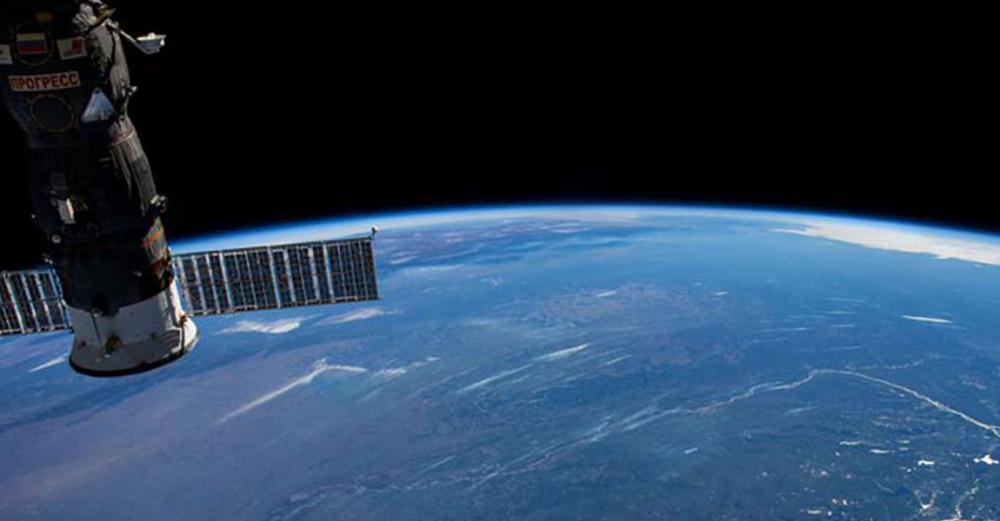Just Earth News | @justearthnews | 09 Oct 2020

NASA
New York: Decades of developments in the space sector are being utilized during the COVID-19 pandemic, helping countries to keep their citizens safe and economies on track, the head of the UN Office for Outer Space Affairs (UNOOSA) said on Wednesday, in a speech to a virtual conference held by the world’s richest nations.
UNOOSA chief Simonetta Di Pippo delivered the keynote address to the G20 meeting focussed on the global space sector, where she outlined the various ways it has been supporting pandemic response and recovery.
“The current pandemic is a crisis unlike any we have ever seen. It has taught us that decisive action matters. It has also shown that when called upon, the space sector can deliver”, she said.
The G20 virtual conference, known as Space20, was the first of its kind, and Ms. Di Pippo was invited to deliver the keynote address by Saudi Arabia, the organization’s current president.
Since 1999, the period from 4-10 October has been celebrated as World Space Week, in line with a UN General Assembly resolution. The dates were chosen in recognition of the 4 October 1957 launch of Sputnik 1, the first Earth satellite, and the 10 October 1967 signing of the Outer Space treaty. This year's theme is 'Satellites improve lives.' UNOOSA has organized a series of related webinars, with the latest scheduled for Friday.
Space in action
The top UN official told participants that since the start of the pandemic, UNOOSA had launched a Space and COVID-19 Knowledge Portal to capture and share examples of “space in action”, with nearly 100 specific contributions documented.
Ms. Di Pippo explained that there are three key space technologies: Earth Observation, Global Navigation Satellite Systems and satellite communications.
When integrated with space-enabled mobile applications, they have helped to get essential goods across borders and assisted the observation of physical distancing rules. Governments have also rolled out national coronavirus “track and trace” programmes on time, and at scale - with a little help from above.
“Simply put, space has limited disruption and helped keep our societies and the economies on track”, she said.
The contributions do not stop there. With lockdowns imposed across the world, people are staying connected thanks to space technologies. Telehealth practitioners in developing countries are now using eHealth platforms, and countless children are continuing their education through digital learning programmes.
Furthermore, space agencies have also asked the commercial space sector to join the fight against COVID-19, which has resulted in a vast quantity of ground-breaking technology and space application solutions, mainly in healthcare and education, she continued.
“Many space agencies have looked to their considerable in-house development expertise to leverage spin-off space exploration technologies”, said Ms. Di Pippo. “This has seen a wide range of new open source technologies being brought to market, including handheld ventilators, 3-D printed respirator masks and cheap but effective sterilisation kits.”
Space essential for development
UNOOSA launched a platform in June to engage directly with the private sector during the pandemic. Ms. Di Pippo reported that the Space Economy Initiative began with a webinar series which gathered success stories of economic growth from across the global space sector.
“Through such proactive approaches, we are not just combating this pandemic but also sowing the seeds for the longer-term economic recovery as we build back better”, she stated.
As Ms. Di Pippo told participants, the value of space technology and data for socio-economic development is “beyond doubt”.
Research from UNOOSA and the European Union reveals that nearly 40 per cent of the targets underpinning the 17 Sustainable Development Goals (SDGs) rely on Earth Observation and Global Navigation Satellite Systems.
COVID-19 and beyond
In highlighting the vital contributions and new technologies, Ms. Di Pippo warned that COVID-19 will not be the last pandemic where the space sector will have a role. She urged participants to reflect on two things: “what has worked well, and how can we do even better next time?”
The UNOOSA Director proposed three recommendations for stepping up collaboration, beginning with enhancing ways for exchanging best practices.
Throughout the pandemic, space agencies have drawn from the sector’s long-standing tradition of providing open data, which has been crucial for policymakers, the media, academia, international organizations and the general public.
“Where feasible directly link open-source space data with capacity-building activities; increase access and utility for all users, especially those in developing countries,” she said.
For her final point, Ms. Di Pippo called for the space sector to leverage its “unique qualities” to monitor the global economic crisis brought on by the pandemic, and to set up indicators and solutions to further develop space assets for stronger economic recovery.